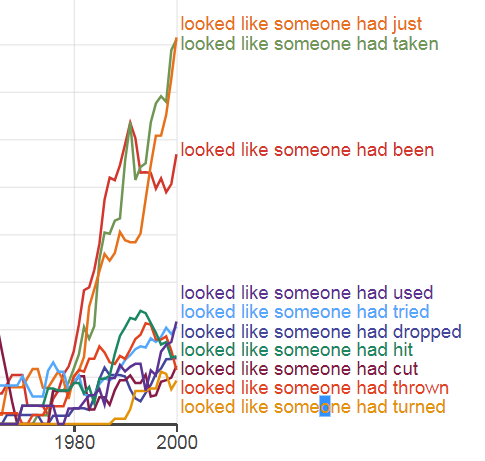You have the sentence start in the past simple, and then move into past perfect. This is a textbook example of the base time of the sentence being the past, and part of it referring to something further back in the past.
The box looked as if, prior to the time the sentence is covering, someone played football with it. You want to change it because playing football is an activity with a duration, and thus you think the progressive is more appropriate.
The past perfect progressive is appropriate to use when the activity had duration, or indeed is a genuine activity at all (using it with stative verbs, verbs that denote states rather than actions, is rarely appropriate). However, that doesn't mean it's always more appropriate. Picking verb forms in English is far more often about knowing what not to use, and then picking from what's left. We often use simple and past participle forms of action verbs.
The difference in meaning between past perfect and past perfect progressive, when they are both appropriate, is usually slight, and frankly sometimes nonexistent for all practical purposes.
Someone had played football with it.
This means that, at some point prior to the base time of the sentence, someone played football with the object. They were no longer doing so at the base time, and there's the nuance that they hadn't just stopped recently. Most likely the speaker didn't witness them doing it. However, that matter, of witness and how long ago they stopped, is a matter of nuance, not essential meaning.
Someone had been playing football with it.
This means that, at some point prior to the base time of the sentence, someone was playing football with the object. They were no longer doing so at the base time. It is possible they had just stopped prior to the base time, but that is just possible - not implied. The speaker may have witnessed it, but that is just possible - not implied.
If you want to say they'd just recently stopped playing football with it, to be clear about that, you can do so with either form.
Someone had just played football with it.
Someone had just been playing football with it.
So, yes, you can change the sentence as you describe, but it is not in any demonstrable way better, or more standard, or more right. When it comes to aspect, a lot of the time the choice is stylistic or about (sometimes very subtle) nuance.

